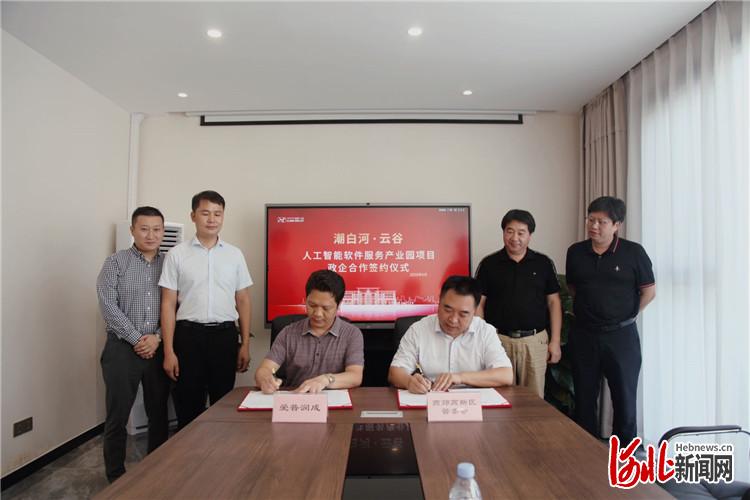放下担忧,爱上人工智能
- 资讯
- 2021-03-02
- 21647
参考消息网3月1日报道

How I Learned To Stop Worrying And Love AI
放下担忧,爱上人工智能
hile AI will dramatically transform how work is done and who does it, its overall impact won't be to displace humans but to augment them. And the myriad, miraculous ways that this technology will be able to improve people's lives should excite and inspire.
Most of the fears of artificial intelligence are overblown if not altogether unfounded. For one thing, the machine-learning models that are being deployed in enterprises today are lightyears away from the kind of general intelligence that humans possess and that the public (with their Terminator and Ex Machina ideas of artificial intelligence) thinks of when it thinks of AI/ML. These models are all depth and no breadth: very powerful at what they've been trained to do—image recognition, speech-to-text, disease diagnosis—but extremely limited in the imaginative scope of what they can do beyond that. Today's AI lacks a human child's common sense ability to do something as simple as, say, reliably pick out a chihuahua from a blueberry muffin.
In fact, far from replacing people, the most promising products being developed are the ones that marry human judgment and intuition with AI's brute-force processing power. The reality is that because code has been commoditized, most innovation is now being created at the interface with end users—at the level where empathy is essential. Consumers don't care, ultimately, how advanced a company's technology is; they care about how simple the solution it offers is.
Artificial intelligence isn't a Sarah Connor-killing, jobs-eradicating threat. It's a tool, which in the past decade, has arrived at a point where it is finally practical to deploy across the tech ecosystem. There isn't and won't be a single AI company. Instead, you will see artificial intelligence woven into the fabric of everything—whether you're interacting with a virtual personal assistant like Siri or Alexa, or trying to find the fastest route to the airport, or optimizing which color blouse you'd be most likely to buy from your monthly subscription commerce service, or how to detect which drones flying above Levi's Stadium are friend or foe.
And perhaps it's only when a technology is fully integrated into daily life, and recedes into the background of our imagination, that people stop fearing it. After all, the most successful automations are no longer called robots—they're called cruise control, washing machines, and elevators. So: be not afraid. The machines are rising,and they will carry us higher.
虽然人工智能将极大地改变工作如何以及由谁来完成,但它的总体影响并不是取代人类,而是增强人类。这项技术能够以无数神奇的方式改善人类的生活,我们该为此欢欣鼓舞。
关于人工智能的大多数担忧即使并非毫无根据,也受到了夸大。首先,目前企业中应用的机器学习模式与人类拥有的那种一般智能以及公众(抱着影片《终结者》和《机械姬》里那种对人工智能的印象)在考虑人工智能或机器学习时想到的那种一般智能有着天壤之别。这些模型只有深度,没有广度:在人类训练它们做的事情上,它们非常强大,例如图像识别、语音转文字、疾病诊断,但在它们除此之外还能做什么这个问题上的想象力极为有限。今天的人工智能缺乏人类孩子的常识能力,连一些十分简单的事情都无法完成,比如清楚区分吉娃娃和蓝莓松饼。
事实上,研发中的那些最有前途的产品远不会取代人,而是会将人类的判断力和直觉同人工智能的强大处理能力结合起来。现实情况是,由于代码已经商品化,创新现在大多诞生于终端用户界面——在同理心至关重要的层面。归根结底,消费者并不在乎一家公司的技术有多先进,他们在乎的是它提供的解决方案有多简便。
人工智能并不是一项会杀死萨拉·康纳(电影《终结者》中的主要角色——译者注)、消灭就业岗位的威胁。它是一种工具,在过去10年里,它已经发展到终于能实际部署到整个技术生态系统的程度。世上没有、也不会有独一无二的人工智能公司。你会发现人工智能无处不在——不管你是与像Siri或Alexa那样的虚拟个人助理互动,试图找到去往机场的最快路线,还是优化你最有可能从每月订阅的商务服务中购买哪件彩色衬衫,抑或如何查明在利维斯体育场上空飞行的无人机哪些是敌、哪些是友。
或许只有当一项技术完全融入日常生活,并逐渐淡出我们的想象时,人们才不再会对它感到担忧。毕竟,最成功的自动化不再被称为机器人——它们被称为巡航控制、洗衣机和电梯。所以,不要害怕。机器正在崛起,它们会带我们飞得更高。(李莎译自2月4日美国《福布斯》双周刊网站)
本文由woniu于2021-03-02发表在中国AI网,如有疑问,请联系我们。
本文链接:https://www.chinaai.com/zixun/6764.html


















